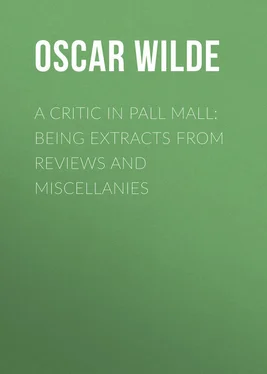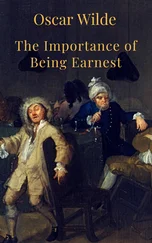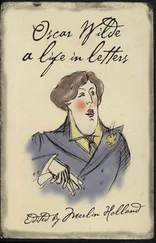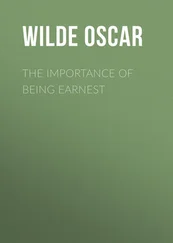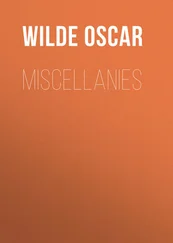Oscar Wilde - A Critic in Pall Mall - Being Extracts from Reviews and Miscellanies
Здесь есть возможность читать онлайн «Oscar Wilde - A Critic in Pall Mall - Being Extracts from Reviews and Miscellanies» — ознакомительный отрывок электронной книги совершенно бесплатно, а после прочтения отрывка купить полную версию. В некоторых случаях можно слушать аудио, скачать через торрент в формате fb2 и присутствует краткое содержание. Жанр: foreign_prose, на английском языке. Описание произведения, (предисловие) а так же отзывы посетителей доступны на портале библиотеки ЛибКат.
- Название:A Critic in Pall Mall: Being Extracts from Reviews and Miscellanies
- Автор:
- Жанр:
- Год:неизвестен
- ISBN:нет данных
- Рейтинг книги:5 / 5. Голосов: 1
-
Избранное:Добавить в избранное
- Отзывы:
-
Ваша оценка:
- 100
- 1
- 2
- 3
- 4
- 5
A Critic in Pall Mall: Being Extracts from Reviews and Miscellanies: краткое содержание, описание и аннотация
Предлагаем к чтению аннотацию, описание, краткое содержание или предисловие (зависит от того, что написал сам автор книги «A Critic in Pall Mall: Being Extracts from Reviews and Miscellanies»). Если вы не нашли необходимую информацию о книге — напишите в комментариях, мы постараемся отыскать её.
A Critic in Pall Mall: Being Extracts from Reviews and Miscellanies — читать онлайн ознакомительный отрывок
Ниже представлен текст книги, разбитый по страницам. Система сохранения места последней прочитанной страницы, позволяет с удобством читать онлайн бесплатно книгу «A Critic in Pall Mall: Being Extracts from Reviews and Miscellanies», без необходимости каждый раз заново искать на чём Вы остановились. Поставьте закладку, и сможете в любой момент перейти на страницу, на которой закончили чтение.
Интервал:
Закладка:
Amongst the most interesting chapters of the book are those on the Inquisition, on Sarpi, the great champion of the severance of Church from State, and on Giordano Bruno. Indeed, the story of Bruno’s life, from his visit to London and Oxford, his sojourn in Paris and wanderings through Germany, down to his betrayal at Venice and martyrdom at Rome, is most powerfully told, and the estimate of the value of his philosophy and the relation he holds to modern science, is at once just and appreciative. The account also of Ignatius Loyola and the rise of the Society of Jesus is extremely interesting, though we cannot think that Mr. Symonds is very happy in his comparison of the Jesuits to ‘fanatics laying stones upon a railway’ or ‘dynamiters blowing up an emperor or a corner of Westminster Hall.’ Such a judgment is harsh and crude in expression and more suitable to the clamour of the Protestant Union than to the dignity of the true historian. Mr. Symonds, however, is rarely deliberately unfair, and there is no doubt but that his work on the Catholic Reaction is a most valuable contribution to modern history – so valuable, indeed, that in the account he gives of the Inquisition in Venice it would be well worth his while to bring the picturesque fiction of the text into some harmony with the plain facts of the footnote.
On the poetry of the sixteenth century Mr. Symonds has, of course, a great deal to say, and on such subjects he always writes with ease, grace, and delicacy of perception. We admit that we weary sometimes of the continual application to literature of epithets appropriate to plastic and pictorial art. The conception of the unity of the arts is certainly of great value, but in the present condition of criticism it seems to us that it would be more useful to emphasize the fact that each art has its separate method of expression. The essay on Tasso, however, is delightful reading, and the position the poet holds towards modern music and modern sentiment is analysed with much subtlety. The essay on Marino also is full of interest. We have often wondered whether those who talk so glibly of Euphuism and Marinism in literature have ever read either Euphues or the Adone . To the latter they can have no better guide than Mr. Symonds, whose description of the poem is most fascinating. Marino, like many greater men, has suffered much from his disciples, but he himself was a master of graceful fancy and of exquisite felicity of phrase; not, of course, a great poet but certainly an artist in poetry and one to whom language is indebted. Even those conceits that Mr. Symonds feels bound to censure have something charming about them. The continual use of periphrases is undoubtedly a grave fault in style, yet who but a pedant would really quarrel with such periphrases as sirena de’ boschi for the nightingale, or il novello Edimione for Galileo?
From the poets Mr. Symonds passes to the painters: not those great artists of Florence and Venice of whom he has already written, but the Eclectics of Bologna, the Naturalists of Naples and Rome. This chapter is too polemical to be pleasant. The one on music is much better, and Mr. Symonds gives us a most interesting description of the gradual steps by which the Italian genius passed from poetry and painting to melody and song, till the whole of Europe thrilled with the marvel and mystery of this new language of the soul. Some small details should perhaps be noticed. It is hardly accurate, for instance, to say that Monteverde’s Orfeo was the first form of the recitative-Opera, as Peri’s Dafne and Euridice and Cavaliere’s Rappresentazione preceded it by some years, and it is somewhat exaggerated to say that ‘under the regime of the Commonwealth the national growth of English music received a check from which it never afterwards recovered,’ as it was with Cromwell’s auspices that the first English Opera was produced, thirteen years before any Opera was regularly established in Paris. The fact that England did not make such development in music as Italy and Germany did, must be ascribed to other causes than ‘the prevalence of Puritan opinion.’
These, however, are minor points. Mr. Symonds is to be warmly congratulated on the completion of his history of the Renaissance in Italy. It is a most wonderful monument of literary labour, and its value to the student of Humanism cannot be doubted. We have often had occasion to differ from Mr. Symonds on questions of detail, and we have more than once felt it our duty to protest against the rhetoric and over-emphasis of his style, but we fully recognize the importance of his work and the impetus he has given to the study of one of the vital periods of the world’s history. Mr. Symonds’ learning has not made him a pedant; his culture has widened not narrowed his sympathies, and though he can hardly be called a great historian, yet he will always occupy a place in English literature as one of the remarkable men of letters in the nineteenth century.
Renaissance in Italy : The Catholic Reaction . In Two Parts. By John Addington Symonds. (Smith, Elder and Co.)
MR. MORRIS’S ODYSSEY
Of all our modern poets, Mr. William Morris is the one best qualified by nature and by art to translate for us the marvellous epic of the wanderings of Odysseus. For he is our only true story-singer since Chaucer; if he is a Socialist, he is also a Saga-man; and there was a time when he was never wearied of telling us strange legends of gods and men, wonderful tales of chivalry and romance. Master as he is of decorative and descriptive verse, he has all the Greek’s joy in the visible aspect of things, all the Greek’s sense of delicate and delightful detail, all the Greek’s pleasure in beautiful textures and exquisite materials and imaginative designs; nor can any one have a keener sympathy with the Homeric admiration for the workers and the craftsmen in the various arts, from the stainers in white ivory and the embroiderers in purple and gold, to the weaver sitting by the loom and the dyer dipping in the vat, the chaser of shield and helmet, the carver of wood or stone. And to all this is added the true temper of high romance, the power to make the past as real to us as the present, the subtle instinct to discern passion, the swift impulse to portray life.
It is no wonder the lovers of Greek literature have so eagerly looked forward to Mr. Morris’s version of the Odyssean epic, and now that the first volume has appeared, it is not extravagant to say that of all our English translations this is the most perfect and the most satisfying. In spite of Coleridge’s well-known views on the subject, we have always held that Chapman’s Odyssey is immeasurably inferior to his Iliad , the mere difference of metre alone being sufficient to set the former in a secondary place; Pope’s Odyssey , with its glittering rhetoric and smart antithesis, has nothing of the grand manner of the original; Cowper is dull, and Bryant dreadful, and Worsley too full of Spenserian prettinesses; while excellent though Messrs. Butcher and Lang’s version undoubtedly is in many respects, still, on the whole, it gives us merely the facts of the Odyssey without providing anything of its artistic effect. Avia’s translation even, though better than almost all its predecessors in the same field, is not worthy of taking rank beside Mr. Morris’s, for here we have a true work of art, a rendering not merely of language into language, but of poetry into poetry, and though the new spirit added in the transfusion may seem to many rather Norse than Greek, and, perhaps at times, more boisterous than beautiful, there is yet a vigour of life in every line, a splendid ardour through each canto, that stirs the blood while one reads like the sound of a trumpet, and that, producing a physical as well as a spiritual delight, exults the senses no less than it exalts the soul. It may be admitted at once that, here and there, Mr. Morris has missed something of the marvellous dignity of the Homeric verse, and that, in his desire for rushing and ringing metre, he has occasionally sacrificed majesty to movement, and made stateliness give place to speed; but it is really only in such blank verse as Milton’s that this effect of calm and lofty music can be attained, and in all other respects blank verse is the most inadequate medium for reproducing the full flow and fervour of the Greek hexameter. One merit, at any rate, Mr. Morris’s version entirely and absolutely possesses. It is, in no sense of the word, literary; it seems to deal immediately with life itself, and to take from the reality of things its own form and colour; it is always direct and simple, and at its best has something of the ‘large utterance of the early gods.’
Читать дальшеИнтервал:
Закладка:
Похожие книги на «A Critic in Pall Mall: Being Extracts from Reviews and Miscellanies»
Представляем Вашему вниманию похожие книги на «A Critic in Pall Mall: Being Extracts from Reviews and Miscellanies» списком для выбора. Мы отобрали схожую по названию и смыслу литературу в надежде предоставить читателям больше вариантов отыскать новые, интересные, ещё непрочитанные произведения.
Обсуждение, отзывы о книге «A Critic in Pall Mall: Being Extracts from Reviews and Miscellanies» и просто собственные мнения читателей. Оставьте ваши комментарии, напишите, что Вы думаете о произведении, его смысле или главных героях. Укажите что конкретно понравилось, а что нет, и почему Вы так считаете.
